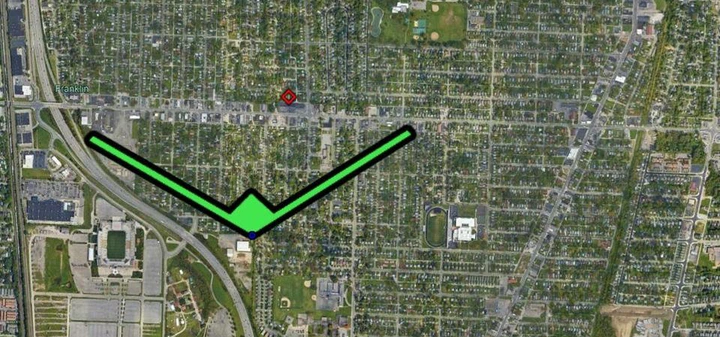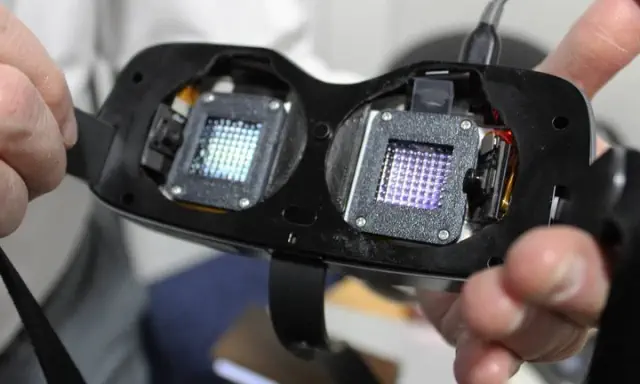Texas Attorney General Ken Paxton has initiated legal action against Allstate and its affiliate, Arity, alleging that they illegally gathered and sold sensitive information from over 45 million individuals in the United States without obtaining proper consent.
The legal complaint claims that Arity compensated mobile app developers with millions to integrate tracking software into their applications, such as Routely, Fuel Rewards, GasBuddy, and Life360. This software secretly gathered trillions of miles of driving information from users' smartphones, encompassing location and movement details. It is alleged that the data obtained was subsequently sold to multiple insurance firms, including Allstate.
Attorney General Paxton contends that these actions violate the Texas Data Privacy and Security Act, which mandates that companies obtain clear consent from consumers before collecting or sharing their personal data. The lawsuit seeks civil penalties of up to $10,000 per violation, along with a court order requiring Allstate and Arity to delete the improperly obtained data, Reuters reports.
This lawsuit is part of a broader initiative by the Texas Attorney General's office to enforce data privacy laws and protect consumers from unauthorized data exploitation. It follows previous actions against other companies for similar violations.

View pictures in App save up to 80% data.
The Importance of Location Data in Relation to Privacy and Cybersecurity
Location data is one of the most sensitive types of personal information because it reveals where you are, where you’ve been, and, by extension, aspects of who you are. For both privacy and cybersecurity, the misuse or leakage of location data can have profound implications.
A Day in the Life: Monitored by Your Location Information
It begins like any ordinary morning. You rise from your bed, your phone resting on the nightstand beside you. Instinctively, you reach for it to check your notifications, inadvertently broadcasting your location to a nearby cell tower. As you head out to your workplace, your phone’s GPS monitors your journey, recording each stoplight and turn you make. This routine commute generates a digital trail—a map that, over time, reveals precisely where you reside, socialize, and earn a living.
During your lunch break, you swing by a pharmacy to collect a prescription. Afterward, you head to a counseling center or participate in a gathering at your religious community. Although these experiences are intimate and personal, they are quietly recorded by various apps and devices, creating a comprehensive overview of your behaviors and daily patterns.
Once your workday concludes, you make your way to a nearby political rally or community gathering. Regardless of whether your intention is to engage or simply observe, location services track your attendance, contributing to your digital footprint. By the time the day wraps up, your phone has compiled an almost accurate representation of your whereabouts—disclosing not only your locations but possibly the motivations behind your attendance.
This narrative isn't just a theoretical concept; it reflects the true nature of how location data operates. Your home address and the locations you frequent contribute to a wealth of information that can disclose personal details about your life, including elements you might prefer to keep confidential:
- Health conditions, based on visits to specific medical facilities.
- Religious affiliations, through attendance at places of worship.
- Political views, inferred from attendance at rallies or protests.
As this data is monitored over time, it transforms into a formidable instrument for profiling people—often leading to significant repercussions. Whether employed for personalized advertising, monitoring, or various other applications, the narrative conveyed by your location data might be more enlightening than you think.
In the realm of digital forensics, location data is crucial for conducting lifestyle analysis, which involves examining movement and behavioral patterns to create profiles of individuals. Consider an ordinary day: your smartphone records your whereabouts during your commute, while you shop, and when you go to personal meetings. By day’s end, various applications have quietly compiled a detailed map of your travels. However, when this location data is exploited or exposed, it raises significant privacy and cybersecurity concerns, including risks of stalking, identity theft, and intrusive surveillance.
Lifestyle Examination: A Case Study in Digital Forensics
In a medical malpractice lawsuit I was involved in, the plaintiff experienced significant complications during what was supposed to be a standard surgical procedure, resulting in a lifelong requirement for additional medical care. The case focused not only on the surgical mistake itself but also on the personal habits of the surgeon, whose conduct in the months prior to the surgery was closely examined.
By conducting a lifestyle analysis, I was able to combine cell phone location data and social media activity, along with witness statements and receipts, to construct a detailed account of the surgeon’s life in the months leading up to the incident. This investigation uncovered a significant shift in the surgeon's behavior following the conclusion of a tumultuous divorce.
Cell phone records revealed a pattern of late-night outings to bars and clubs, occasionally staying out until 4 AM, just hours prior to planned surgical procedures. The location information enabled attorneys and investigators to locate witnesses, who recounted seeing the surgeon at social gatherings where he appeared to be under the influence on several occasions throughout the week.
Medical professionals provided testimony indicating that insufficient sleep and possible impairment due to substance use could greatly affect decision-making abilities, reaction times, and motor skills. The attorneys representing the plaintiff contended that these elements probably played a role in the surgeon's mistake, transforming what should have been a standard procedure into a devastating incident.
Forensic specialists utilize location information to analyze behaviors and identify patterns, but acquiring such insights without permission constitutes a violation of privacy and opens the door to possible misuse. When location data is improperly handled or disclosed, it goes beyond merely indicating a person's whereabouts; it exposes their daily routines, personal habits, and even sensitive details about their lives, including health issues, religious beliefs, and political opinions.









